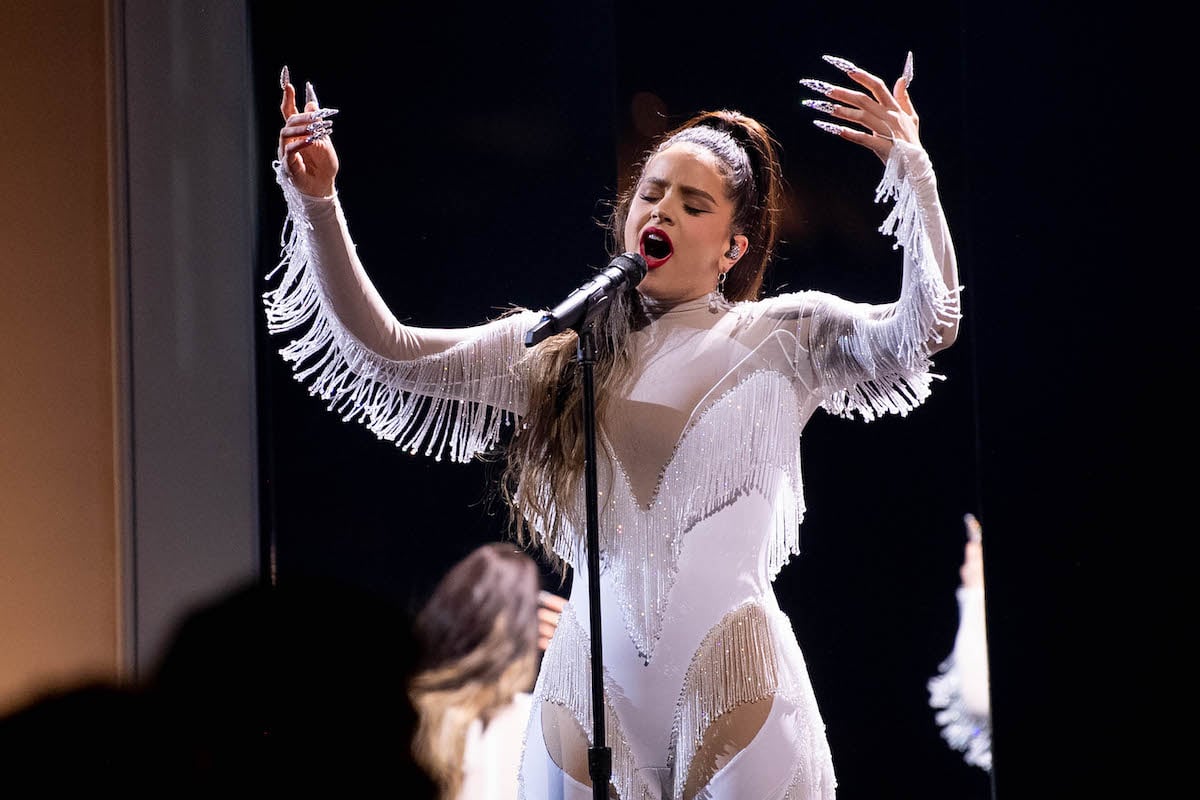How Rosalía Responds to Criticism That She Shouldn’t Make Flamenco Music
Rosalia is a chart-topping artist whose music features a variety of cultural influences. But the singer has been receiving some criticism for appropriating certain sounds, particularly Flamenco. Here’s how she responded.

Rosalia was born in Spain
Rosalia Vila Tobella was born and raised in Catalonia, Spain, where she pursued her passion for music at an early age. She started her training at the Taller de Músics at 16 and went on to attend the Superior School of Music of Catalonia.
Rosalia also learned (and later taught) Flamenco. And in 2012, she joined a Flamenco music group called Kejaleo and put out her first album, Alaire.
The Spanish singer rose to fame as a Flamenco-pop artist. And for her 2018 album, El Mal Querer, and her songs “Con Altura”, “Yo x Ti, Tu x Mi,” and “TKN,” Rosalia won a Grammy Award and eight Latin Grammys.
But over the years, Rosalia has received criticism for her Flamenco sound. Flamenco is a style of music and dance associated with Spanish Romanis, also known as Gitanos. And because Rosalia is not ethnically Romani, she has been accused of appropriating the sound for her own gain.
Rosalia responds to critics who accuse her of appropriation
In a recent interview with GQ, Rosalia talked about her musical influences. And when discussing her emergence as a Flamenco artist, the singer said it stemmed from her love and admiration of the genre.
“There are many things, many people, that have influenced me, that have enabled me to make my music,” Rosalia shared.
“If I choose musical styles, you can see that reggaetón clásico, dembow, bachata, and bolero are all present. That is all a result of love, admiration, and the utmost respect.”
Rosalia is aware of the accusations of appropriation launched against her. But she insisted that her music is inspired and honest. “I can only talk to you from my own truth, which doesn’t mean it’s the correct one,” the pop star admitted.
“To me, making music is a human manifestation. It’s what makes me wake up in the morning with enthusiasm, what keeps me hopeful, my most honest way of communication.”
“One of the reasons I wanted to be a musician was because I would get to travel and learn new things, meet new people,” Rosalia continued.
“All those things affect me as a person, and I want those things to affect my sound. I understand and empathize with the people who may feel a different way, but the truth is that, if I stopped [to] think there is a right way or a wrong way to be inspired, I wouldn’t be able to make music.”
Rosalia knew Flamenco was her ‘path’ at age 13
Rosalia fell in love with Flamenco when she first heard it blasting from a car at the age of 13. “From the beginning, I knew,” she told Fader in 2019. “I realized, This is my path.”
After finding herself mesmerized by the sound, Rosalia began training with renowned Flamenco artist José Miguel “El Chiqui” Vizcaya. By 20, she became a Flamenco teacher herself. And while speaking about her training, the singer recognized how lucky she was and how difficult things can be for people of the Gitano community.
“I understood that the problem, in the end, was privilege — that there are people today who want to dedicate themselves to something like this, and they have more difficulty because they don’t have the possibility of studying,” Rosalia said. “The gitano community is a community of specific importance to Flamenco — of codifying Flamenco. The visibility some of these artists haven’t received — I empathize with that.”


